After the pandemic, Zuzana and Denis Kuzl began considering a move abroad to start a new chapter in life. She was a manager, he worked in a brewery. After their first weekend trip to Porto, Portugal, they quit their jobs and relocated to the other side of Europe to open a craft beer brewery called Baobab. The first year was tough, but today Baobab is one of the highest-rated and most beloved venues in all of Porto, and Zuzana and Denis are now familiar faces in the local craft beer community.
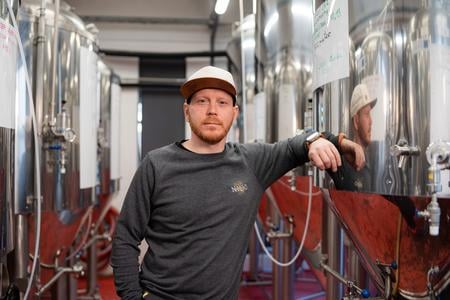
When did the idea of opening a craft beer bar first come to you?
Denis: Years ago, during a trip to Portugal, I got the impression that there were all kinds of venues—except craft beer bars. When the pandemic was ending, my wife and I began discussing whether it might be better to leave Slovakia, and Portugal sprang to mind. I pitched the idea of opening a craft beer bar in Porto, taking advantage of the post-Covid market when prices were still more reasonable. The thinking was that Slovakia is already a beer country with a saturated market, but I saw a lot of potential in Portugal.
Were you still living in Slovakia at that point?
Denis: Yes. Once lockdowns were lifted, we spotted a €7 flight to Porto and decided to go check it out. We spoke to local business owners to see if they thought a craft beer bar would be a good idea, and everyone told us not to wait—that prices would rise, tourists would return, and the economy would bounce back. That same trip, we started viewing potential premises.
Zuzana: Our first visit to Porto was in October, and by November we'd both quit our jobs. We kept flying back and forth to look for a flat and business premises.
Denis: We were lucky—we found both in the same week, at a good price. We even had to write a motivation letter to the property owner of the latter, since it was a newly renovated building. She wanted to know if we were worth her time.
What were your jobs back in Bratislava?
Zuzana: We’re both from eastern Slovakia—I’m from Humenné and Denis is from Spišská Nová Ves. Like many others, we met at university in Bratislava. I worked as a manager, and Denis is actually trained as a zoologist and biologist.
Denis: Jobs in the natural sciences don’t pay particularly well in Slovakia, so I ended up working in a brewery at the Stará Tržnica venue.
Zuzana: He already knew everything about beer—I hadn’t even tasted craft beer before meeting him. Then he took me on a date and gave me a stout to try. It's a strong, sweet beer. I liked it.
So you had the idea, and now you had the premises. What came next?
Zuzana: We were fortunate. We mentioned to the estate agent who found us a flat that we were opening a bar. He put us in touch with a lawyer who arranged all the paperwork and helped set up the company. We didn’t want to risk a surprise inspection finding something amiss. The lawyer’s best mate is an accountant, their mum works in insurance, their neighbour deals with tills, and another contact works in hygiene. Within two weeks, we had almost everything sorted.
When did the full concept for Baobab take shape?
Zuzana: The market kind of decided for us. We wanted a bar filled with flowers and natural light—a place where everyone would feel welcome. Not just beer enthusiasts, but couples too. Most women don’t want to go on a date to a pub while dressed up, so we made the space beautiful.
Denis: There are no all-male beer sessions here—everyone comes. We’ve only got five or six tables, so we focus on the people. We ask them what they like and what they’d like to try.
How many people tried to put you off entering the industry?
Zuzana: Almost everyone. They said it’s a money pit. When Denis came to me with the idea, I told him to give me a couple of days so I could run the numbers. I made a plan A, B, and C, did the maths, and told him I was in. There were no craft beer bars in Porto, tourism was growing, and prices were only going to rise. He was shocked I agreed.
According to Google Maps, your bar has 500 reviews with an average rating of 4.9 out of 5. Has the dream come true?
Zuzana: Yes. Sometimes I see the bar packed from the street and feel really proud. I love seeing people enjoying great beer, smiling and in a good mood. In Spain, we loved how you get small tapas with your drink. We wanted to do the same, so we always serve a little bowl of snacks with each beer—people love it. And we let customers sample the beers, too.
Denis: The craft beer community is wonderful. People drop in and start chatting about their experiences and favourite brews. You can meet dozens of craft beer lovers in a single day. We also get people trying craft beer for the first time. We never have to force conversation—it all happens naturally. We talk, we learn, and people leave happy.
Have the Portuguese warmed up to two Slovaks serving them bold craft beers while they sip their lagers?
Zuzana: Not entirely. There’s a small group of Portuguese who really love craft beer. The Porto community is supportive—when someone brews something new, we visit each other. But the average Portuguese drinker is quite traditional.
Denis: Our advantage is that Portugal is a very international country, and Porto is a cosmopolitan city. On weekends, when the bar is packed, only about 20 percent of our guests are Portuguese. We’ve got friends from all over.
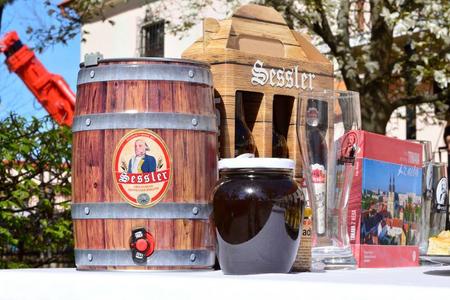
What if I pop into your bar and fancy a good beer? Is there something for me if I’m not in the mood for craft beer?
Zuzana: We’ve got eight taps. Czech Budvar is always on one, and it’s reasonably priced. We also offer cider.
Denis: The other beers change weekly. We want people to return knowing there’ll always be something new to try. It also ensures freshness, as stock turns over quickly. We always have a dark beer, a sour, a bitter or fruity IPA, something stronger, something lighter—and a special. Plus, we’ve got two fridges full of cans and bottles that people often take home as souvenirs.
What’s the logistics side like?
Denis: Local breweries here are tiny. We’re talking about 100 litres a month, brewed in someone’s converted garage. A brewer might ring us to say they’ve got one keg available—they won’t be brewing again for another month.
Zuzana: It’s mostly a hobby for them. There’s no need to supply supermarkets. It’s all about personal relationships. We also have distributors who send us a weekly list of what they’ve got—some weeks it’s French or German beers, other times it’s something else.
Do you brew your own beer?
Denis: Only for special occasions, like our anniversary. For our third year, we brewed three different beers.
Zuzana: One was made by a Portuguese friend, another by brewer Rita, and the third by mates at a large brewery in Lisbon. But I don’t like brewing big batches—I want it to stay limited and special.
I saw on social media that you brewed a beer inspired by Horalky (an iconic Slovak wafer – Ed.). Was that a one-off too?
Zuzana: Last year, we were planning a sweet, strong stout and had the idea of making it taste like Horalky. We gave a sample to a friend who thought it was brilliant. I emailed Sedita (the wafer producer), asking if we could use the name and post about it. Their marketing director replied, thrilled—no one had ever asked them before. They even promoted us on their website.
Denis: That Horalky beer actually won second place for best craft stout last year.
Do people ask you to brew it again?
Denis: Absolutely—even Sedita asked. But for now, we’re keeping it special. Maybe in a few years. We’ve still got plenty of ideas—and loads of other Sedita wafers to explore!
How much does a beer cost at Baobab?
Denis: In a typical Portuguese pub, a 0.25-litre Superbock costs about €1.50. At our place, 0.3 litres of Budvar is €2.50. A small craft beer starts at €3. We don’t want to charge a fortune or create separate prices for tourists.
Zuzana: It’s better when people realise craft beer isn’t just for millionaires. I’d rather someone comes back often than visits once, pays too much, and never returns.
Was there ever a moment in that first year when you thought it wouldn’t work out?
Zuzana: Definitely—from the very first day. When takings were just €5 or €10. Owning a business is lovely, but seeing your bank balance drop isn’t.
Denis: We dreamed of making money from the start, but without investors, loans, or a wealthy family, it didn’t happen. At one point we had enough money left for just two more months. If things hadn’t turned around, we’d have had to shut down.
So, when did things turn around?
Zuzana: On our first anniversary. Everyone who’d supported us came to the bar—Portuguese friends, neighbouring business owners, brewers, foreigners, tourists.
Denis: That’s when we realised we could take a day off without everything falling apart.
Zuzana: Apart from our wedding day, we worked every single day that first year. Even then, the wedding was on a Saturday and Denis was back behind the bar on Monday. Two years in, things finally eased up. We’ve got help now, and the bar runs smoothly even when we’re not there.
©Closer

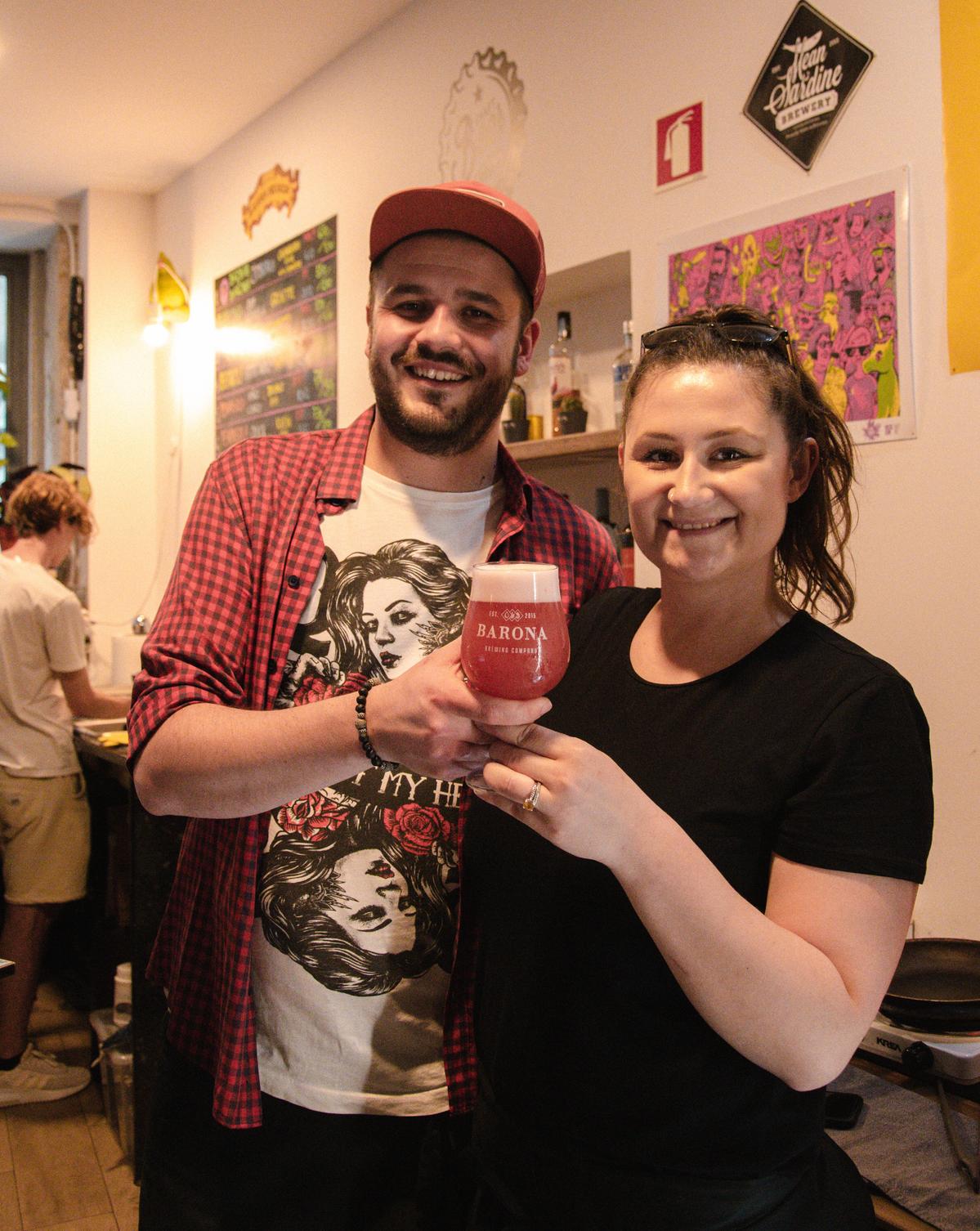
 Denis and Zuzana Kuzl run a successful brewery in Porto, Portugal. (source: Archive of D. K. and Z. K. )
Denis and Zuzana Kuzl run a successful brewery in Porto, Portugal. (source: Archive of D. K. and Z. K. )
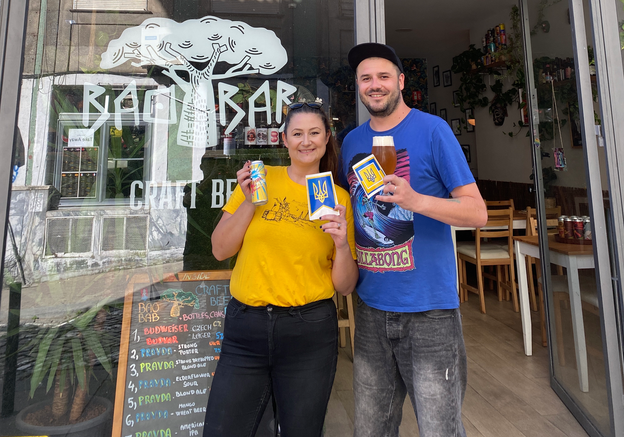 They named their venue Baobab. (source: Archive of D. K. and Z. K.)
They named their venue Baobab. (source: Archive of D. K. and Z. K.)
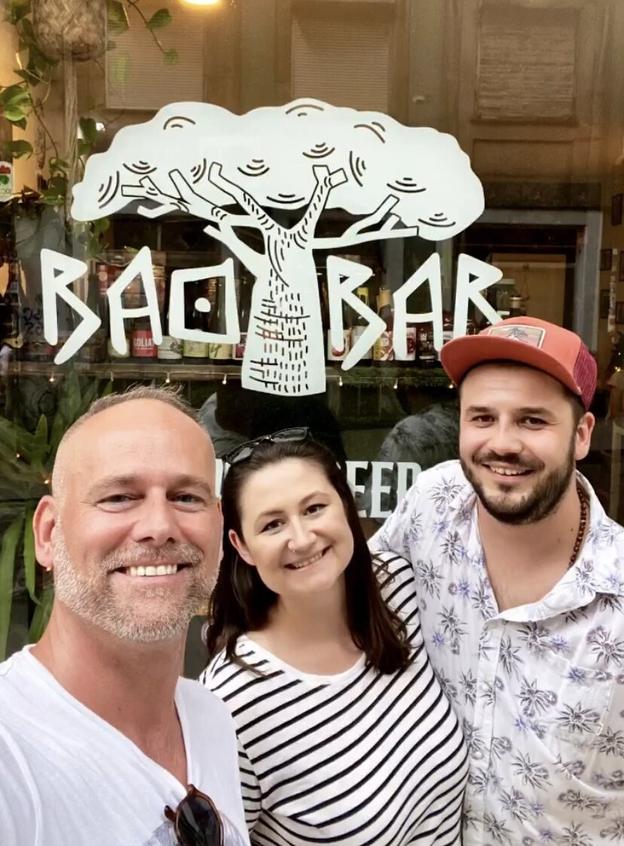 Slovak TV host Pavel Bruchala paid them a visit too. (source: Archive of D. K. and Z. K. )
Slovak TV host Pavel Bruchala paid them a visit too. (source: Archive of D. K. and Z. K. )
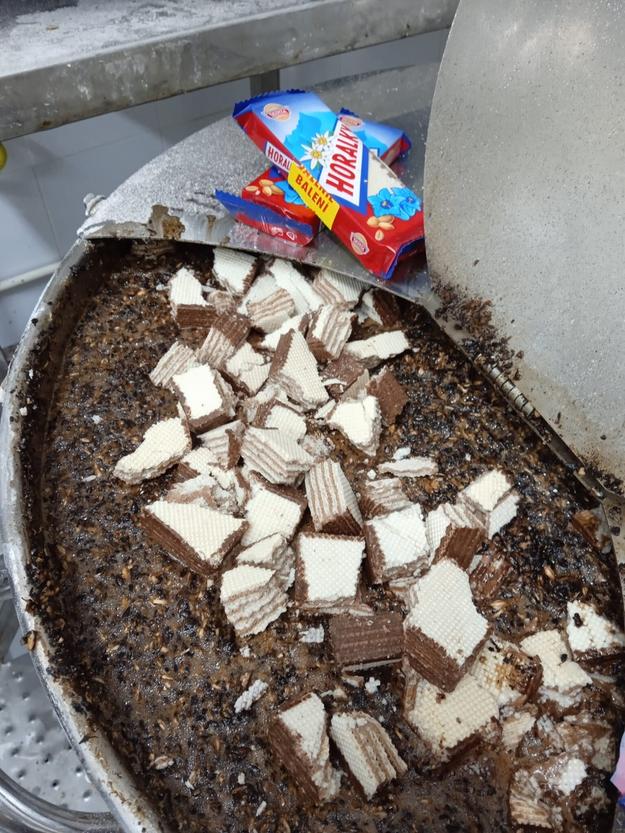 This is how they made their Horalky beer. (source: Archive of D. K. and Z. K. )
This is how they made their Horalky beer. (source: Archive of D. K. and Z. K. )